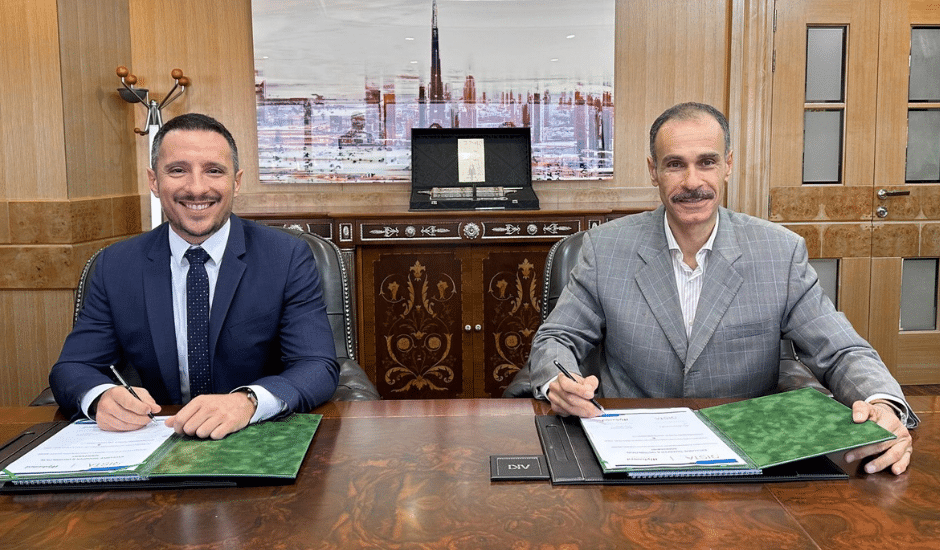On December 18, Qista, a Provencal SME and member of French Healthcare Association, announced that it had set up a partnership with the Environmental Division of Al Khayyat Investments (AKI), a leading pest control company in the United Arab Emirates, to export its eco-friendly anti-mosquito innovation to the country. The solution proposed by the French start-up meets the needs expressed by the Emirati authorities, not only to combat these pests but also to prevent the epidemic risks associated with infestations.
On December 18, Malik Hassan, Managing Director of Al Khayyat Investments, and Fadi El Fakhouri, Director of Alphamed, joined forces with the Qista teams to launch an ecological and effective mosquito control system in the country. The start-up already offers some 11,000 installations in 23 different countries, and is now exporting to France, Spain and Italy, as well as to West and East Africa.
On the sidelines of COP28, QISTA exports its eco-friendly mosquito solution to the United Arab Emirates
QISTA is continuing its international expansion through this partnership with AKI Group, which will distribute several hundred QISTA traps nationwide to reduce mosquito nuisance in leisure complexes, tourist establishments, outdoor work companies, schools and health centers.
QISTA has developed an alternative to toxic chemical methods, with its patented anti-mosquito technology that respects the environment and the food chain. Another major advantage: the terminal also enables real-time geolocation tracking, mapping and analysis of mosquito populations, for preventive purposes to measure current and future infestation levels. Last June, the scientific journal Animals published a study confirming the ability of QISTA anti-mosquito traps to capture mosquitoes carrying diseases.

« Le déploiement de nos solutions innovantes, fièrement fabriquées en France, s’aligne parfaitement avec le renforcement stratégique de la lutte écologique contre les moustiques aux Emirats arabes unis. Nous remercions AKI pour sa confiance et son engagement dans ce partenariat unique. L’internationalisation est un relai de croissance indispensable pour QISTA et nous sommes impatients d’unir nos convictions communes pour contribuer à une approche durable et novatrice de la lutte contre les moustiques »
Pierre Bellagambi, PDG de QISTA
The solutions proposed by QISTA should therefore contribute to the implementation of a truly innovative, concrete and ambitious approach to mosquito control, taking into account a high level of ecological, economic and toxicological requirements for end-to-end action.
Mosquito control, a major health issue in the region and in France
At least 11 different species of mosquito have been identified in the United Arab Emirates, some of which carry diseases such as malaria and West Nile virus. Generally speaking, these pests can transmit the Zika virus, dengue fever, chikungunya… they are held responsible for almost 750,000 deaths a year, which is not getting any better as global warming encourages their proliferation. They are also resistant to insecticides and larvicides, which are not environmentally friendly solutions. The mosquito is no longer confined to very hot areas: in France, 71 departments have now been colonized by the tiger mosquito, and last October, the Ile-de-France region was home to the northernmost case of indigenous dengue fever ever recorded. These multiple forms of resistance accentuate the difficulty of effectively combating mosquitoes, and are a reminder of the need to export this type of innovation in order to prevent potentially very serious diseases.
